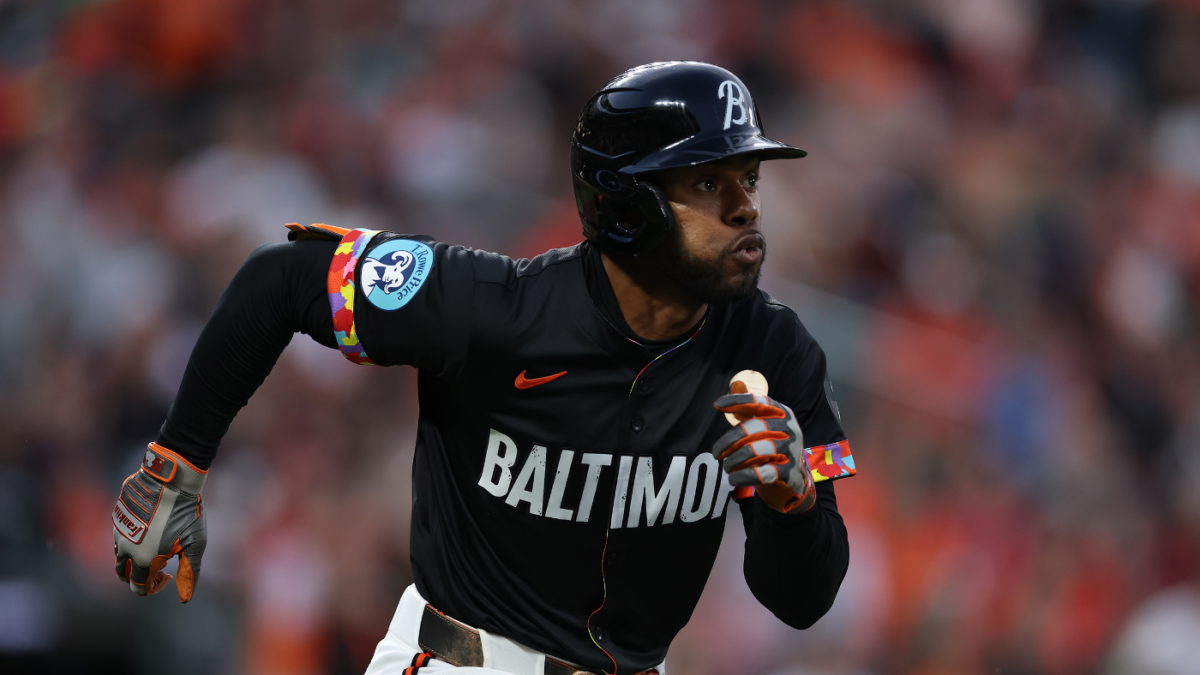The Mets Acquire Cedric Mullins: A Strategic Move with Far-Reaching Implications
Introduction
The New York Mets’ acquisition of Cedric Mullins from the Baltimore Orioles is a move that transcends the immediate needs of the team. While the trade addresses a pressing outfield deficiency, it also reflects a broader strategic vision for the Mets’ future. This analysis explores the multifaceted impact of the trade, examining its short-term benefits, long-term implications, and the strategic calculus behind the decision.
The Immediate Impact: Addressing the Outfield Crisis
The Mets’ outfield has been a source of frustration for much of the season. Injuries, inconsistent performances, and a lack of depth have left the team vulnerable in a critical area of the field. Mullins’ arrival provides a much-needed infusion of talent and experience.
Defensive Stability
Mullins’ defensive prowess is perhaps his most valuable asset. His ability to cover ground in center field is a significant upgrade for the Mets, who have struggled with defensive consistency. His arrival stabilizes the outfield, reducing the risk of errors and improving the team’s overall defensive metrics.
Offensive Potential
While Mullins’ offensive numbers this season have been underwhelming, his track record suggests he is capable of a resurgence. His career .270 batting average and .340 on-base percentage indicate he can be a reliable top-of-the-order hitter. The Mets are betting that a change of scenery and a fresh start can reignite his offensive production.
Lineup Flexibility
Mullins’ left-handed bat adds a valuable dimension to the Mets’ lineup. His ability to hit for average and get on base provides manager Carlos Mendoza with more options when constructing the batting order. This flexibility can be crucial in high-leverage situations, where the Mets have often struggled.
The Long-Term Vision: Building for the Future
The Mets’ decision to acquire Mullins is not just about the present; it’s also about the future. The trade reflects a strategic vision that balances immediate needs with long-term goals.
Minimizing Prospect Cost
The Mets gave up three minor league relievers in the trade: Raimon Gomez, Anthony Nunez, and Chandler Marsh. While these players have potential, they are not considered top-tier prospects. This low-cost acquisition allows the Mets to address a pressing need without significantly depleting their farm system.
Financial Considerations
Mullins’ contract is manageable, with the Mets responsible for a portion of his $8.7 million salary. This financial flexibility is crucial for a team already carrying a significant payroll. The Mets can now allocate resources to other areas of need without overcommitting to a single player.
The Orioles’ Perspective: A Rebuilding Strategy
For the Orioles, trading Mullins is a calculated move that aligns with their long-term rebuilding strategy. The acquisition of three minor league relievers provides them with valuable depth and potential future assets.
Strengthening the Farm System
The Orioles’ farm system has been a priority for the organization. The addition of Gomez, Nunez, and Marsh strengthens their minor league depth, providing them with more options as they develop their roster. These players may not be stars, but they represent valuable assets in a rebuilding process.
Developing Young Talent
The departure of Mullins creates opportunities for young players within the Orioles organization. This can accelerate the development process and provide the Orioles with valuable insights into their long-term potential. The trade is a step towards building a sustainable winning culture.
The Broader Implications: The NL East Race
The acquisition of Mullins could have a significant impact on the NL East race. The Mets are locked in a tight battle with the Philadelphia Phillies, and any improvement to their roster could prove to be a difference-maker.
Competitive Edge
Mullins’ arrival provides the Mets with a competitive edge. His defensive stability and offensive potential can be the difference between winning and losing close games. In a division as competitive as the NL East, every advantage counts.
Psychological Boost
The trade also sends a message to the rest of the league. The Mets are committed to winning now and are willing to make bold moves to achieve their goals. This can have a psychological impact on the team, boosting morale and reinforcing their belief in their ability to compete for a championship.
Conclusion: A Strategic Move with Potential Upside
The Mets’ acquisition of Cedric Mullins is a strategic move that addresses a clear area of need and provides the team with added depth and flexibility. While the trade may not be a blockbuster, it represents a calculated decision to improve the team’s chances of success in the short term. For the Orioles, the trade allows them to continue building their farm system and prioritize their long-term vision. Ultimately, the success of this trade will depend on Mullins’ ability to rebound and contribute to the Mets’ playoff push. The move is a testament to the Mets’ commitment to winning and their willingness to make bold decisions to achieve their goals.











